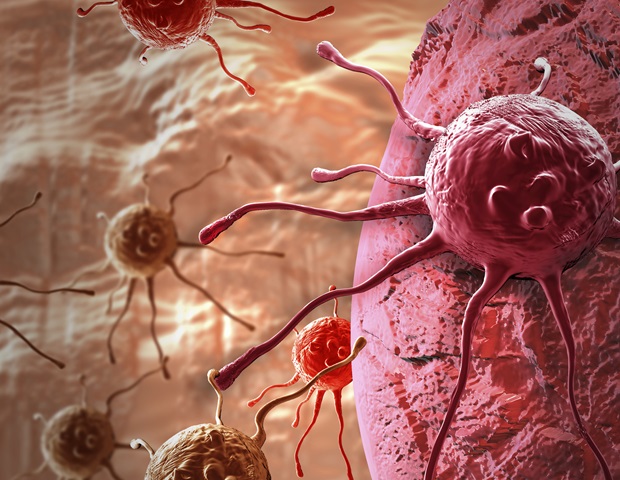Developing new cancer treatment tools, using imaging techniques such as PET-CT and MRI, and new radiopharmaceuticals for next-generation personalized therapies (“Theranostics”) to target cancer first at the “diagnosis” phase and then at the “therapy” phase, using the same biological targets (“see to treat”). Additionally, the project aims to develop and implement AI-based tools for data sharing among research and hospitals, supporting clinical decisions and predicting individual patient treatment response and outcome.
This is the main focus of the Horizon IHI Project, “Thera4Care – Theranostics Ecosystem for Personalised Care,” the largest European project on Theranostics, coordinated by Università Cattolica, Rome, and Fondazione Policlinico Universitario Agostino Gemelli IRCCS. To launch Thera4Care, Università Cattolica will host the Kick-Off Meeting on October 7-8, 2024, at the campus (Room 201, Faculty of Economics) and Policlinico Universitario A. Gemelli IRCCS (Room 716, 7th floor).
The focus of the kick-off meeting will be to align the team on the project’s objectives and expectations. Additionally, the meeting will review the project’s timeline and resources, discuss potential risks, and management strategies of the various research groups involved. This meeting will ensure that all participants are informed and prepared to start the project, which is funded by the European Commission under the Innovative Health Initiative (IHI, Horizon Europe), with a total funding of approximately €28 million, supporting a consortium of 29 international partners from academia and industry.
The entire project and European consortium will be coordinated by Evis Sala, Professor of Diagnostic Imaging and Radiotherapy at Università Cattolica and Director of the Department of Diagnostic Imaging and Radiotherapy at Fondazione Gemelli IRCCS, and Dr. Salvatore Annunziata, a Nuclear Medicine physician and the Head of the GSTeP Radiopharmacy Facility at Fondazione Policlinico Universitario Agostino Gemelli IRCCS, supported by a team of project and grant managers (Saverio Gravina, Rachele Brancaleoni, Laura Motta), and the Scientific Directorate and GSTeP Facilities of Fondazione Policlinico Universitario A. Gemelli IRCCS.
The kick-off meeting will host approximately 70 participants from various European and non-European countries, representing the 29 academic and industrial partners, to introduce and plan the project activities, which will develop into 9 work packages over the next 5 years.
The project aims to create a European network of excellence, capable of revolutionizing and surpassing current theranostic procedures with conventional radiopharmaceuticals (such as PSMA for prostate cancer or DOTATOC for neuroendocrine tumors) by developing new theranostic radiopharmaceuticals with next-generation ligands and radioisotopes (like FAPI for the tumor microenvironment and short-range alpha-emitting radioisotopes). The focus is on female and gastrointestinal tumours, with the goal of reducing exposure to healthy tissues and healthcare personnel, integrating theranostics into a multimodal context with MRI and AI (to enhance treatment selection and evaluation), improving diagnostic technologies supporting theranostics (PET, SPECT, dosimetry), and finally, establishing and promoting a new European School of Theranostics in collaboration with scientific and patient associations.
Professor Sala and Dr. Annunziata stated: “Università Cattolica and Fondazione Gemelli IRCCS will coordinate the entire project and, together with the Scientific Directorate and other Departments of Fondazione Policlinico Universitario A. Gemelli IRCCS, will implement new radiopharmaceutical therapies for gynecological and gastrointestinal cancers, MRI applications, and artificial intelligence, and train on theranostics at a European level.”
We are deeply proud to lead this innovative European project on theranostics, a frontier where diagnostics and therapy merge to offer increasingly personalized and effective treatments. Our goal is to provide the international scientific community with cutting-edge expertise to improve patient care prospects. Coordinating this initiative means promoting collaboration between research and clinical practice, creating synergies that can revolutionize the approach to complex diseases. Our University thus reaffirms its commitment to being a center of excellence and innovation in the medical field.”
Antonio Gasbarrini, Professor and Dean, Faculty of Medicine and Surgery, Università Cattolica
Prof. Giovanni Scambia, Scientific Director of the IRCCS Fondazione Policlinico Universitario Agostino Gemelli, explained: “this project is very important for Policlinico Gemelli, which aims to position itself as a reference hospital for Precision Medicine. In this context, the launch of a Theranostics project becomes an essential aid for oncology patients at the Policlinico, contributing significantly to personalized care and initiating important research projects,” he concluded.
Source link : News-Medica

